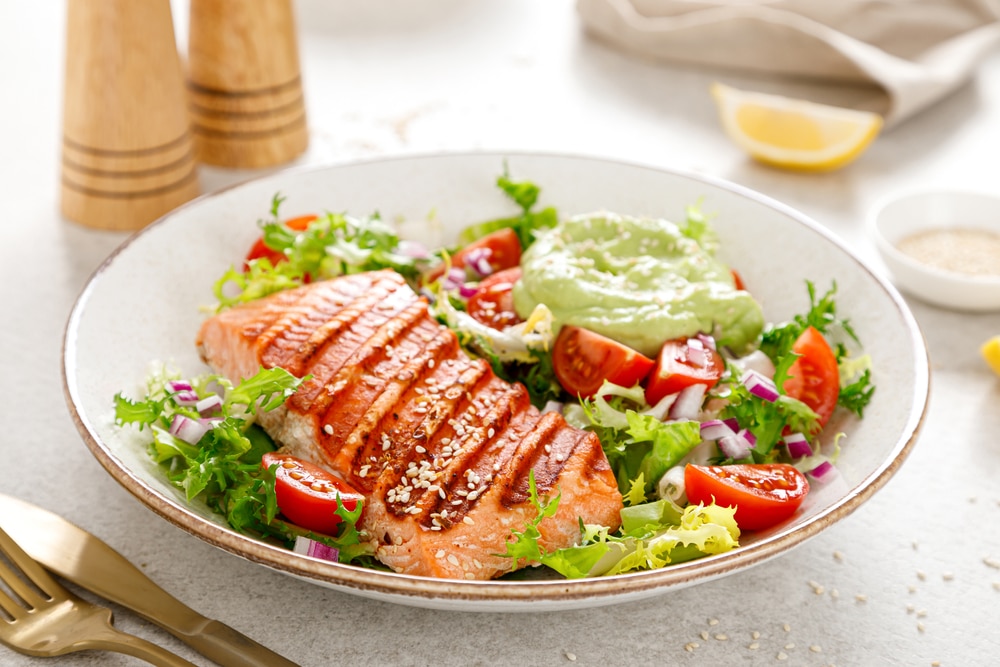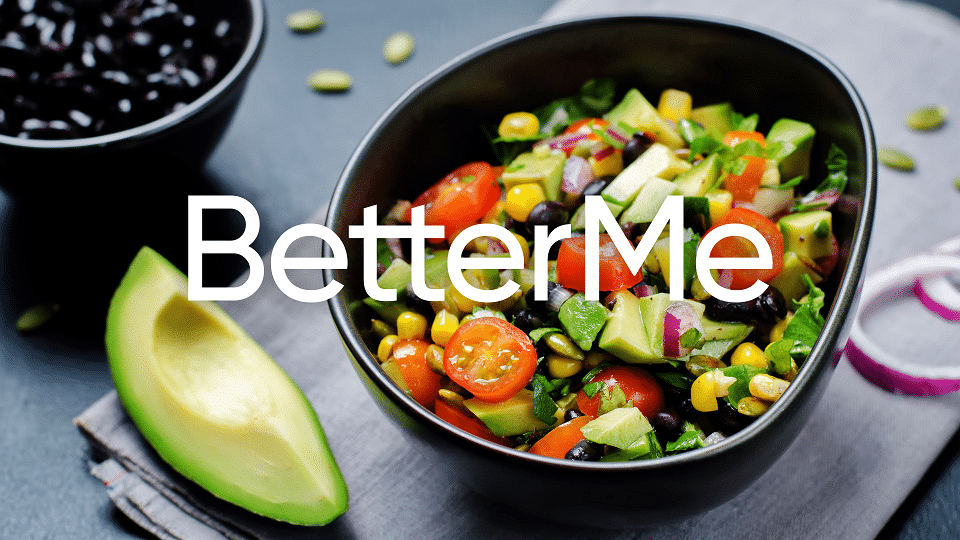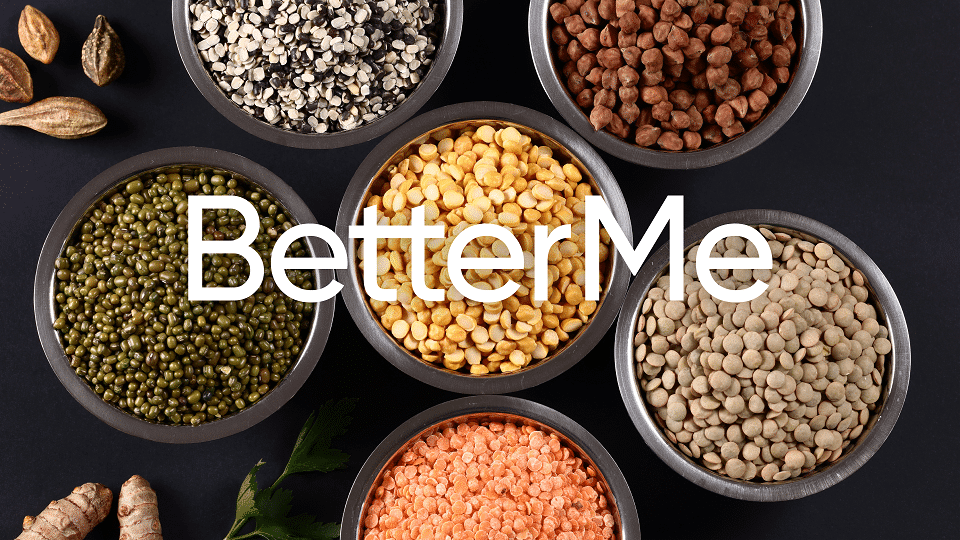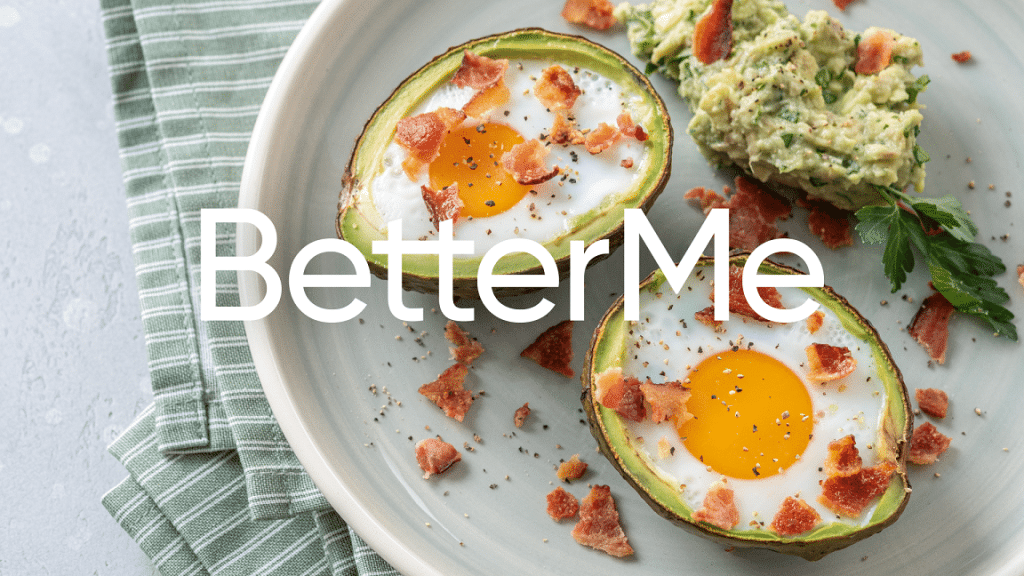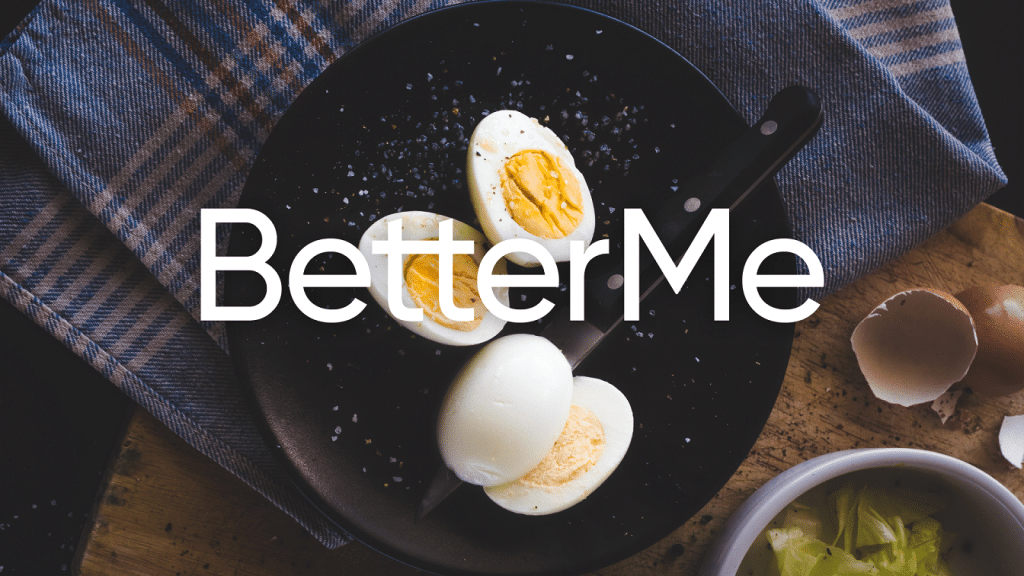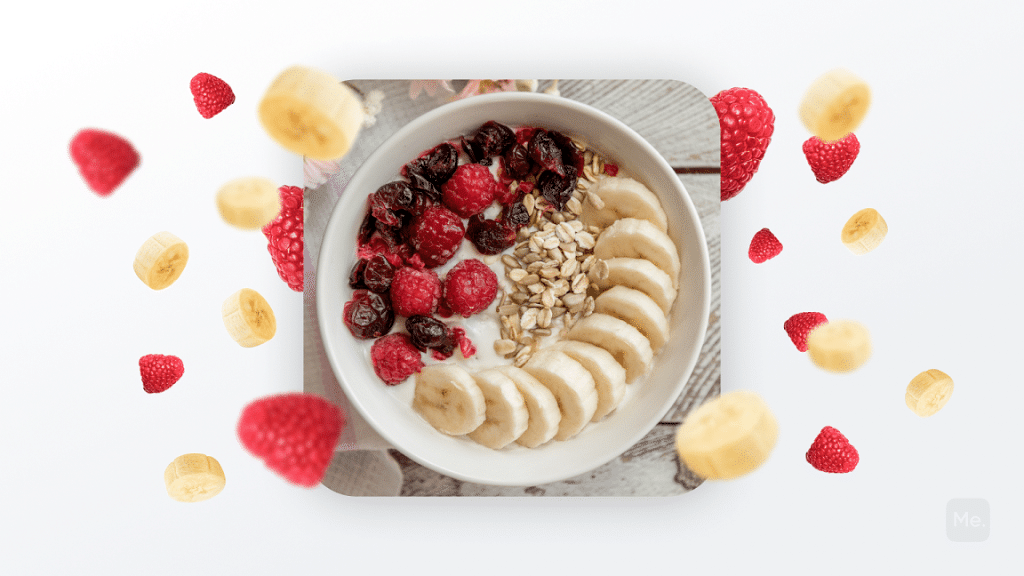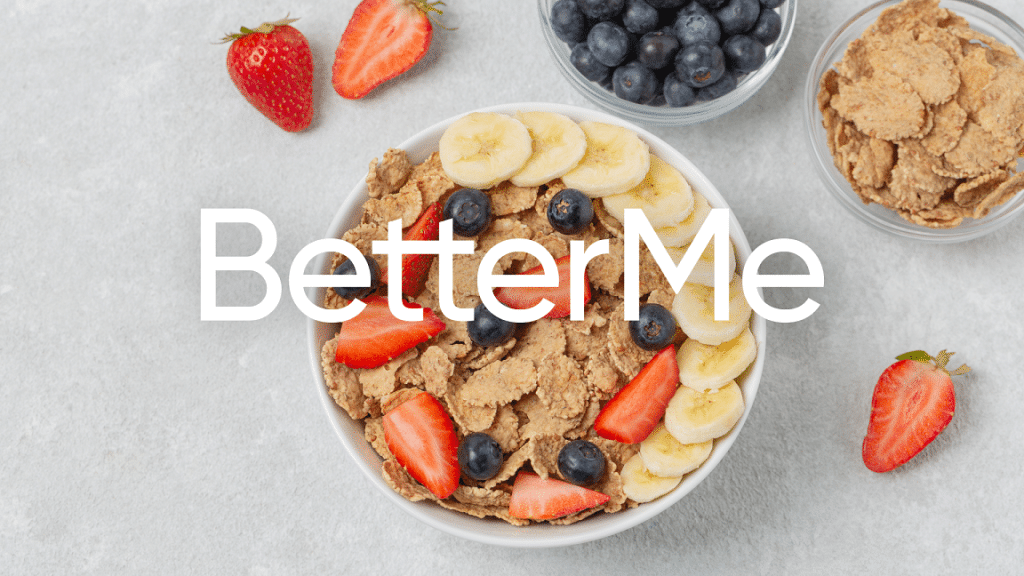Weakness, fatigue, shortness of breath, and pale skin are all common symptoms of low red blood cell count or anemia (1). Red blood cells are important for delivering oxygen to all parts of your body. If you are experiencing any of the above symptoms, it is important to talk to your doctor and see if you might have anemia. There are many different causes of anemia, but one of the most common is not getting enough iron in your diet. Iron is necessary for the production of red blood cells. When you are not getting enough iron from your diet, your body might start to produce fewer red blood cells (1). If you’re looking for ways to improve your red blood cell count, eating blood building foods that are rich in iron and other nutrients can help.
Get your personalized
meal plan!
Blood Building Foods
The following is a list of blood building foods that are known to boost red blood cell production:
Organ Meats
Organ meats are packed with nutrients that are essential for healthy red blood cell production, including iron, vitamin B12, and copper.
Iron is especially important for red blood cell production, as it is a key component of hemoglobin, the molecule that transfers oxygen from the lungs to the rest of the body (9).
Copper is also important for red blood cell production, as it plays a role in iron metabolism (4).
Vitamin B12 is another key nutrient for red blood cell production. It helps the body form new red blood cells and also maintain the health of existing red blood cells (18).
In addition, organ meats are high in protein and low in fat, making them a healthy and nutrient-rich choice for a meal or snack.
Some of the best blood-boosting organ meats include the liver, heart, and kidney. Try incorporating these meats into your regular diet to help improve your body’s production of red blood cells.
If you’re looking for a quick and easy way to add more organ meats to your diet, try making liver pâté. Pâté is a type of spread made from cooked liver, fat, and herbs. It’s simple to make and can be eaten on its own or used as a spread for sandwiches or toast.
Read More: Hydrating Foods For Skin Health, Hydration, Elasticity, And Glow
Dark Green Leafy Vegetables
Dark green leafy vegetables are another great source of nutrients that are essential for red blood cell production. These vegetables are high in iron, vitamin A, and folate (8).
Iron is important for red blood cell production, as it helps the body form hemoglobin. Folate is also important for red blood cell production, as it helps the body form new red blood cells (8).
Vitamin A is essential for healthy red blood cells. It helps maintain the health of existing red blood cells and is also involved in iron metabolism (8).
In addition, dark green leafy vegetables are a good source of protein and fiber, making them a healthy and nutrient-rich choice for a meal or snack (8).
Some of the best dark green leafy vegetables for boosting red blood cell count include spinach, kale, swiss chard, and collard greens. Try incorporating these vegetables into your regular diet to help improve your body’s production of red blood cells.
Blood Building Foods: Beets
Beets are root vegetables that are high in iron and nitrates.
Iron is important for red blood cell production, as it helps the body form hemoglobin (6).
Nitrates are a compound that is found in beets and other vegetables that are high in nitrates. Nitrates are converted into nitric oxide in the body, and nitric oxide is a compound that may help improve blood flow by helping the blood vessels to relax (6).
In addition, beets are a good source of fiber and vitamin C, making them a healthy and nutrient-rich choice for a meal or snack (6).
Some of the best beets for boosting red blood cell count include golden beets and Chioggia beets.
Beans And Lentils
Beans and lentils are good sources of vitamin B-9 (folic acid), iron, and protein (11).
Folic acid is important for red blood cell production, as it helps the body form new red blood cells (11).
Protein is essential for red blood cell production since it helps the body form hemoglobin (11).
In addition, beans and lentils are a good source of fiber, making them a healthy and nutrient-rich choice for a meal or snack (11).
Some of the best beans and lentils for boosting red blood cell count include black beans, kidney beans, and pinto beans.
Eggs
Egg yolks are a good source of protein, vitamin B-12 (cobalamin) and choline (5).
Vitamin B-12 is important for red blood cell production, as it helps the body synthesize the DNA needed to form new red blood cells. Choline may also be important for blood health because it helps convert homocysteine to methionine, preventing homocysteine from accumulating in the blood (5).
In addition, egg yolks are a good source of protein and omega-3 fatty acids, making them a healthy and nutrient-rich choice for a meal or snack (5).
Some believe that the best eggs for boosting red blood cell count include pasture-raised eggs and organic eggs.
Pasture-raised eggs are eggs that come from chickens that are allowed to roam freely outdoors. Organic eggs come from chickens that are fed an organic diet. The reason that some believe in the superiority over battery eggs is the diet.
Organic and pasture-raised chickens might be allowed to eat bugs as they roam, which is said to give them a better nutrient profile and also make them taste better.
If you wish to cinch your waist, tone up your bat wings, blast away the muffin top – our fitness app was created to cater to all your needs! BetterMe won’t give excess weight a chance!
Blood Building Foods: Red Meat
Red meat is a good source of iron, zinc, and vitamin B-12 (cobalamin) (20).
Iron is important for red blood cell production, as it helps the body form hemoglobin. Zinc is also important for red blood cell production (20).
Vitamin B-12 is important for red blood cell production because it helps the body synthesize the DNA needed to form new red blood cells (20).
In addition, red meat is a good source of protein and omega-3 fatty acids, making it a healthy and nutrient-rich choice for a meal or snack (20).
Some of the best red meat for boosting red blood cell count include grass-fed beef and pasture-raised pork.
Grass-fed beef comes from cows that are allowed to roam freely outdoors and eat grass. Pasture-raised pork comes from pigs that are allowed to roam freely outdoors and eat acorns, grubs, and other insects. The reason some believe in the superiority over conventionally-raised beef and pork is the diet.
Shellfish
Shellfish is a good source of zinc and vitamin B-12 (cobalamin) (14).
Zinc is important for red blood cell production. Vitamin B-12 is important for red blood cell production, as it helps the body synthesize the DNA needed to form new red blood cells (14).
In addition, shellfish is a good source of protein and omega-3 fatty acids, making it a healthy and nutrient-rich choice for a meal or snack (14).
Dairy Products Such As Milk And Cheese
Dairy products are rich in vitamin B-12, which is important for red blood cell production (10).
Vitamin B-12 is essential for new red blood cell formation and also helps maintain the health of existing red blood cells (10).
In addition, dairy products are a good source of protein and calcium, making them a healthy and nutrient-rich choice for a meal or snack (10).
Some of the best dairy products for boosting red blood cell count include milk, yogurt, and cheese.
Read More: Weight Gain Food List: 24 Best Healthy Foods For Gaining Weight Fast
Blood Building Foods: Oysters
Oysters are a type of shellfish that are high in zinc and copper.
Zinc is important for red blood cell production, as it helps the body form hemoglobin. Copper is also important for red blood cell production because it helps the body form new red blood cells (14).
In addition, oysters are a good source of protein and omega-3 fatty acids, making them a healthy and nutrient-rich choice for a meal or snack (14).
Some of the best oysters for boosting red blood cell count include eastern oysters and gulf oysters.
Sweet Potatoes
Sweet potatoes are rich in vitamin A, which is important for red blood cell production (16).
Vitamin A is essential for new red blood cell formation and also helps maintain the health of existing red blood cells (16).
In addition, sweet potatoes are a good source of vitamin C, and potassium, making them a healthy and nutrient-rich choice for a meal or snack (16).
Some of the best sweet potatoes for boosting red blood cell count include orange-fleshed sweet potatoes and purple-fleshed sweet potatoes.
Red Peppers
Red peppers are a good source of vitamin C. Vitamin C helps the body to absorb iron from plant sources (2).
In addition, red peppers are a good source of beta-carotene, vitamin E, and lycopene, making them a healthy and nutrient-rich choice for a meal or snack (2).
Beta-carotene is a type of vitamin A that is converted into retinol, which is essential for new red blood cell formation. Vitamin E is a vitamin that helps protect red blood cells from damage. Lycopene is a type of carotenoid that helps maintain the health of existing red blood cells (2).
Blood Building Foods: Garlic
Garlic is a type of vegetable that is high in selenium. Selenium is important for red blood cell production, as it helps keep red blood cells healthy (13).
In addition, garlic is a good source of zinc and sulfur, making it a healthy and nutrient-rich choice for a meal or snack (13).
Some of the best garlic for boosting red blood cell count include elephant garlic and wild garlic.
Cherries
Cherries are rich in a variety of nutrients, especially copper and potassium.
Copper is important for red blood cell production, as it helps the body form hemoglobin (4). Potassium is also important for blood health because it helps the body maintain fluid balance (12).
In addition, cherries are a good source of beta-carotene, vitamin C, and fiber, making them a healthy and nutrient-rich choice for a meal or snack.
Some of the best cherries for boosting red blood cell count include tart cherries and sweet cherries.
BetterMe is your fast-track ticket to a long-lasting weight loss! Tailor your fitness journey and maximize your results with just a couple of swipes!
Red Wine
Red wine is a beverage that is high in antioxidants and polyphenols.
Polyphenols are a compound that is found in red wine and other plant-based foods. Polyphenols are believed to have anti-inflammatory and antioxidant properties (3).
Antioxidants are compounds that help protect the body from damage caused by free radicals. Free radicals are unstable molecules that can cause damage to cells, including red blood cells (3).
Some of the best red wines for boosting red blood cell count include cabernet sauvignon, syrah, and merlot. Try enjoying a glass of red wine with dinner to help improve your body’s production of red blood cells, but too much alcohol can have a negative effect.
Other Ways To Boost Your RBC Count
While diet can play a role in boosting red blood cell count, there are other ways that you can help improve your RBC production.
Some of the best ways to boost red blood cell count include:
Getting Regular Exercise
Exercise is a great way to improve blood flow. Try including at least 30 minutes of physical activity in your daily routine (7).
Staying Hydrated
Drinking plenty of fluids, especially water, is important for maintaining healthy blood flow and fluid balance (19).
Reducing Stress
Stress can have a negative impact on overall health, including red blood cell production. Try incorporating stress-relieving activities into your daily routine, such as yoga or meditation (17).
Getting Enough Sleep
Getting adequate sleep is essential for overall health and well-being. Adults should aim for 7 to 9 hours of sleep per night (15).
The Bottom Line
A healthy diet is important for overall health and well-being. Eating nutrient-rich foods can help boost red blood cell production and improve your overall health.
In addition to including healthy foods in your diet, there are other ways that you may be able to help boost red blood cell count. Try getting regular exercise, staying hydrated, reducing stress, and getting enough sleep.
DISCLAIMER:
This article is intended for general informational purposes only and does not serve to address individual circumstances. It is not a substitute for professional advice or help and should not be relied on for making any kind of decision-making. Any action taken as a direct or indirect result of the information in this article is entirely at your own risk and is your sole responsibility.
BetterMe, its content staff, and its medical advisors accept no responsibility for inaccuracies, errors, misstatements, inconsistencies, or omissions and specifically disclaim any liability, loss or risk, personal, professional or otherwise, which may be incurred as a consequence, directly or indirectly, of the use and/or application of any content.
You should always seek the advice of your physician or other qualified health provider with any questions you may have regarding a medical condition or your specific situation. Never disregard professional medical advice or delay seeking it because of BetterMe content. If you suspect or think you may have a medical emergency, call your doctor.
SOURCES:
- Anaemia (n.d., who.int)
- Antioxidant and Anti-Inflammatory Activities in Relation to the Flavonoids Composition of Pepper (Capsicum annuum L.) (2020, nih.gov)
- Contribution of Red Wine Consumption to Human Health Protection (2018, nih.gov)
- Copper (2021, nih.gov)
- Eggs (n.d., harvard.edu)
- Functional properties of beetroot (Beta vulgaris) in management of cardio-metabolic diseases (2020, nih.gov)
- Health Benefits of Exercise (2018, nih.gov)
- Health Benefits of Fruits and Vegetables (2012, nih.gov)
- Iron (2021, nih.gov)
- Milk and dairy products: good or bad for human health? An assessment of the totality of scientific evidence (2016, nih.gov)
- Polyphenol-Rich Lentils and Their Health Promoting Properties (2017, nih.gov)
- Potassium (2021, nih.gov)
- Potential Health Benefit of Garlic Based on Human Intervention Studies: A Brief Overview (2020, nih.gov)
- Shellfish consumption and health: A comprehensive review of human studies and recommendations for enhanced public policy (2021, nih.gov)
- Sleeping hours: what is the ideal number and how does age impact this? (2018, nih.gov)
- Sweet Potatoes (n.d., harvard.edu)
- The impact of stress on body function: A review (2017, nih.gov)
- Vitamin B12 (2021, nih.gov)
- Water, Hydration and Health (2011, nih.gov)
- What is the role of meat in a healthy diet? (2018, nih.gov)
